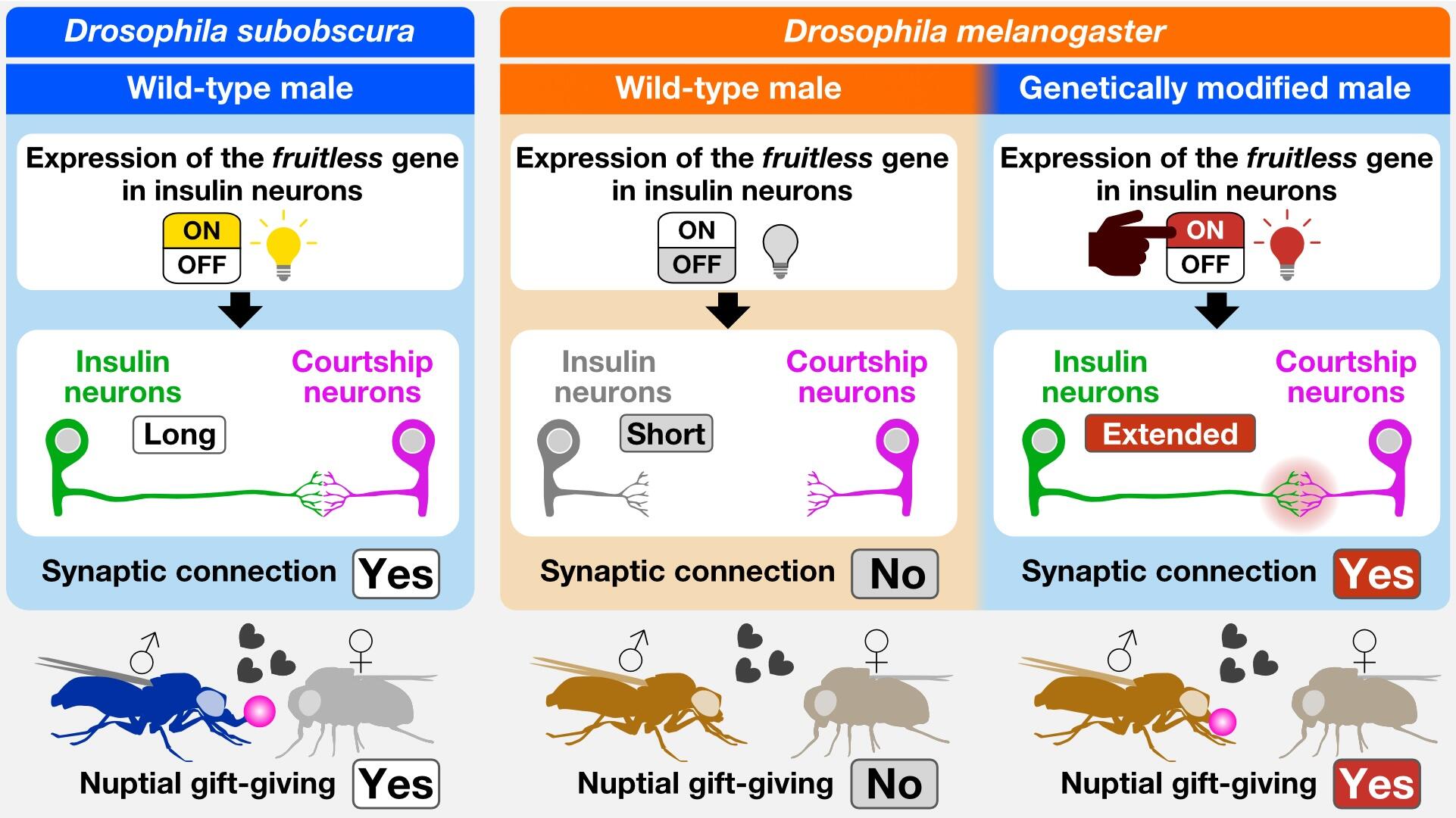
Applying to KAUST - Your Complete Guide for Masters & Ph.D. Programs (Upcoming Admissions)
Admissions Overview & Key Requirements

Researchers in Japan have successfully transferred a complex courtship behavior from one species of fruit fly to another. It represents the first example of manipulating a single gene to transfer a foreign behavior to another species.
Two closely related species of fruit flies—Drosophila melanogaster, which courts females by “singing” with its wings, and Drosophila subobscura, where males regurgitate food and offer it as a nuptial gift—were at the center of the experiment. These species diverged around 35 million years ago and have distinct mating strategies.
Both species share a key gene called fruitless (fru), which drives male courtship behavior. However, the neural circuits controlled by this gene differ between the two species. In gift-giving flies, insulin-producing neurons are connected to the brain’s courtship center, while in singing flies, these neurons are disconnected.
The research team activated the fru gene in the insulin-producing neurons of D. melanogaster, triggering these cells to grow long neural projections and connect to the courtship circuit. This rewiring enabled the singing species to perform gift-giving behavior for the first time.
This achievement provides profound insight into evolution, showing that the emergence of new behaviors does not necessarily require new brain structures. Instead, small genetic modifications in existing neurons can reconfigure circuits, leading to entirely new instincts.
Beyond evolutionary biology, the implications could extend to neuroscience and medicine. Since fruit flies share about 60 percent of their genes with humans, understanding how to rewire brain circuits may one day inform therapies for neurological and psychiatric disorders.
“Our findings indicate that the evolution of novel behaviors does not necessarily require the emergence of new neurons; instead, small-scale genetic rewiring in a few preexisting neurons can lead to behavioral diversification and, ultimately, contribute to species differentiation,” said co-lead author of the study, Yusuke Hara, from the National Institute of Information and Communications Technology (NICT).
The findings were published on August 14, 2025, in Science under the title “Cross-species implementation of an innate courtship behavior by manipulation of the sex-determinant gene.”
Source: Nagoya University
Share

Applying to KAUST - Your Complete Guide for Masters & Ph.D. Programs (Upcoming Admissions)
Admissions Overview & Key Requirements

Erasmus Mundus Joint Master's 2026 (Upcoming Admissions)
Erasmus Mundus programs are scholarships available to students worldwide, offering fully-funded Master’s degrees to study in Europe!

Registration Opens for SAF 2025: International STEAM Azerbaijan Festival Welcomes Global Youth
The International STEAM Azerbaijan Festival (SAF) has officially opened registration for its 2025 edition!

KAIST International Graduate Admissions Spring 2026 in Korea (Fully Funded)
Applications are open for KAIST International Admissions for Master’s, Master’s-PhD Integrated, Ph.D., and Finance MBA

Young Leaders Union Conference 2025 in Paris (Fully Funded)
Join Global Changemakers in Paris! Fully Funded International Conference for Students, Professionals, and Social Leaders from All Nationalities and Fields

An mRNA cancer vaccine may offer long-term protection
A small clinical trial suggests the treatment could help keep pancreatic cancer from returning